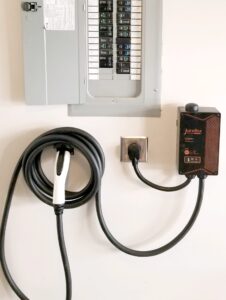Are you tired of constantly checking and maintaining your battery? Look no further! A maintenance-free battery is the perfect solution for all your worries. But what exactly is a maintenance-free battery? Simply put, it is a battery that requires little to no maintenance, allowing you to focus on other important tasks without the hassle of regular battery upkeep. In this article, we will delve deeper into the world of maintenance-free batteries and explore their benefits, uses, and how they can simplify your life. So, let’s dive in and uncover the secrets behind these innovative power sources.
What Is A Maintenance Free Battery?
A maintenance-free battery, as the name suggests, is a type of battery that requires no regular maintenance or upkeep. Unlike traditional batteries that need periodic inspections and maintenance, these batteries are designed to be hassle-free and provide long-lasting performance without any user intervention. They are commonly used in various applications, including automobiles, motorcycles, UPS systems, and solar power systems.
The Design and Composition of Maintenance Free Batteries
Maintenance-free batteries are typically constructed using advanced designs and technologies that eliminate the need for maintenance. Here are the key components and features that make these batteries stand out:
1. Sealed Construction: Maintenance-free batteries are sealed, meaning they are designed to be leak-proof and spill-proof. This sealed construction prevents the electrolyte from evaporating and protects against acid leaks, making them safe to use in various settings.
2. Calcium-Calcium Grids: These batteries utilize calcium-calcium grids, which are made from a lead-calcium alloy. This alloy helps reduce water loss and self-discharge, enhancing the battery’s overall lifespan and performance.
3. Valve-Regulated Design: Maintenance-free batteries often employ a valve-regulated design, also known as a sealed design with a one-way valve. This valve allows the release of excess pressure and prevents the entry of atmospheric oxygen, ensuring a controlled environment inside the battery.
4. Low Water Loss: Unlike traditional batteries, maintenance-free batteries experience minimal water loss during the charging process. This low water loss characteristic eliminates the need for regular water refilling, making them maintenance-free.
The Advantages of Maintenance Free Batteries
Maintenance-free batteries offer numerous advantages over traditional batteries. Let’s take a closer look at some of the key benefits:
1. Convenience: One of the primary advantages of maintenance-free batteries is the convenience they offer. Since they require no maintenance or regular inspection, users can enjoy hassle-free operation and focus on other important tasks.
2. Longer Lifespan: Maintenance-free batteries are built to last. With their advanced design features, such as calcium-calcium grids and sealed construction, they have a longer lifespan compared to traditional batteries. This means fewer replacements and cost savings in the long run.
3. Reduced Water Loss: Traditional batteries often require regular water refilling to compensate for water loss during the charging process. Maintenance-free batteries, on the other hand, experience minimal water loss, eliminating the need for this time-consuming task.
4. Safe Operation: The sealed construction of maintenance-free batteries ensures that they are safe to use in various environments. They are spill-proof and leak-proof, reducing the risk of accidents or damage.
5. Low Self-Discharge: Maintenance-free batteries have a lower self-discharge rate compared to traditional batteries. This means they retain their charge for a longer period, making them suitable for applications where long-term storage is required.
Applications of Maintenance Free Batteries
Maintenance-free batteries find applications in a wide range of industries and settings. Here are a few notable applications:
1. Automotive: Maintenance-free batteries are commonly used in vehicles, including cars, trucks, motorcycles, and recreational vehicles (RVs). They provide reliable starting power and are designed to withstand the demands of automotive use.
2. Uninterruptible Power Supply (UPS) Systems: UPS systems require reliable backup power in case of a power outage. Maintenance-free batteries are often used in UPS setups to ensure uninterrupted power supply to critical equipment and systems.
3. Solar Power Systems: Maintenance-free batteries are ideal for solar power systems as they can store energy generated from solar panels. They are designed to handle repeated charge and discharge cycles, making them suitable for renewable energy applications.
4. Marine: Maintenance-free batteries are widely used in marine applications, such as boats and yachts. Their sealed construction and resistance to vibration and shock make them ideal for marine environments.
5. Recreational: From camping to off-road adventures, maintenance-free batteries power various recreational vehicles, such as ATVs, camping trailers, and golf carts.
Taking Care of Maintenance Free Batteries
Although maintenance-free batteries are designed to be hassle-free, they still require some basic care to ensure optimal performance and longevity. Here are a few tips for taking care of maintenance-free batteries:
1. Keep the Terminals Clean: Regularly inspect the battery terminals for any corrosion or dirt buildup. If necessary, clean the terminals using a battery terminal cleaner and a wire brush.
2. Avoid Deep Discharging: Deep discharging, where the battery is discharged to very low levels, can reduce its lifespan. Avoid overusing the battery without recharging and ensure it is adequately charged after use.
3. Protect from Extreme Temperatures: Extreme temperatures, whether hot or cold, can affect the performance and lifespan of maintenance-free batteries. Whenever possible, store and operate the batteries within the recommended temperature range.
4. Check the Battery Voltage: Use a voltmeter to periodically check the battery voltage. If the voltage drops significantly below the recommended level, it may indicate a problem with the battery or the charging system.
5. Follow Manufacturer Guidelines: Always refer to the manufacturer’s guidelines and recommendations for specific care instructions. Each maintenance-free battery may have unique requirements and specifications.
In conclusion, maintenance-free batteries offer a convenient and reliable power solution for various applications. Their advanced design features, sealed construction, and extended lifespan make them a popular choice for automotive, UPS systems, solar power, marine, and recreational applications. By understanding their composition, advantages, and care requirements, users can ensure optimal performance and longevity from their maintenance-free batteries.
Frequently Asked Questions
What is a Maintenance Free Battery?
A maintenance free battery, also known as a sealed battery or a gel battery, is a type of battery that does not require any regular maintenance or electrolyte refilling. Unlike traditional batteries, maintenance free batteries are designed with a sealed casing that effectively prevents the leakage of electrolyte.
How does a Maintenance Free Battery work?
A maintenance free battery works through a process called recombinant technology. This technology ensures that the generated gases during the battery’s operation are recombined back into water, thus eliminating the need for electrolyte refilling. The sealed design of the battery prevents electrolyte evaporation and minimizes self-discharge, allowing for longer battery life.
What are the advantages of using a Maintenance Free Battery?
There are several advantages of using a maintenance free battery:
- Convenience: With no need for electrolyte refilling or regular maintenance, these batteries are extremely convenient to use.
- Sealed Design: The sealed casing of the battery prevents the leakage of electrolyte, making it safer to handle.
- Longer Battery Life: Maintenance free batteries have a lower self-discharge rate, resulting in longer battery life.
- Wide Range of Applications: These batteries can be used in various applications, including automotive, marine, and backup power systems.
Can a Maintenance Free Battery be recharged?
Yes, maintenance free batteries can be recharged. They can be connected to a suitable charger to replenish their energy levels when they are discharged. It is important to use a charger specifically designed for maintenance free batteries to ensure proper charging and prevent overcharging.
Are Maintenance Free Batteries eco-friendly?
Maintenance free batteries are considered relatively eco-friendly compared to traditional batteries. Since they do not require regular maintenance or electrolyte refilling, there is a reduced risk of electrolyte leakage and environmental contamination. However, it is important to dispose of these batteries properly at designated recycling facilities to ensure they are recycled and do not end up in landfills.
Final Thoughts
A maintenance-free battery is a type of battery that requires no regular maintenance or water refilling. It is designed to provide reliable power without the need for additional attention or upkeep. These batteries are sealed and have built-in technology to prevent acid leakage and minimize self-discharge. With a maintenance-free battery, users can enjoy hassle-free operation and peace of mind knowing that their power source is long-lasting and dependable. So, if you’re looking for a battery that offers convenience and efficiency, a maintenance-free battery is the perfect choice.



